The Big Read in short: Revisiting the link between family formation and housing policies
Each week, TODAY’s long-running Big Read series delves into the trends and issues that matter. This week, we look at how the link between family formation and housing policies in Singapore will evolve amid societal changes. This is a shortened version of the full feature.
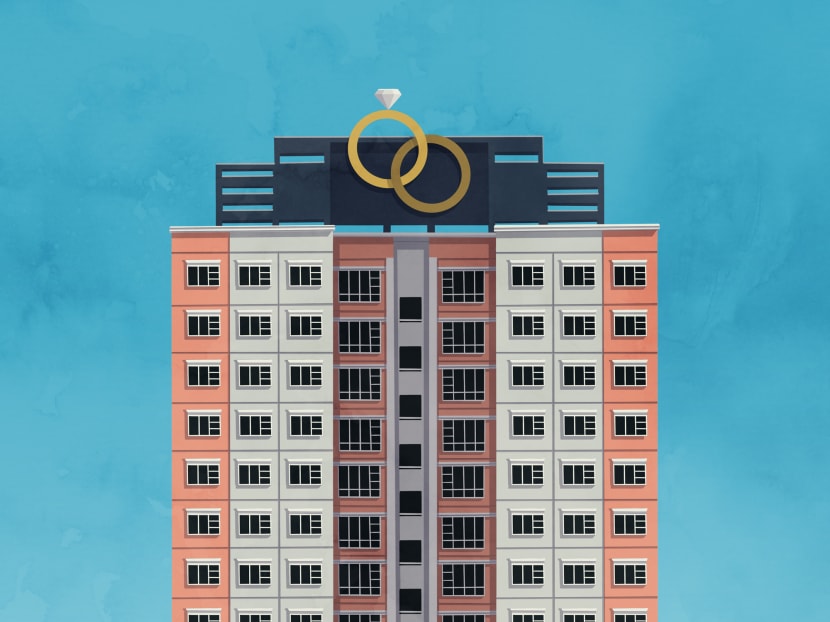
For the longest time, a Singaporean’s marital status is a key factor in determining whether he or she is eligible for public housing.
Each week, TODAY’s long-running Big Read series delves into the trends and issues that matter. This week, we look at how the link between family formation and housing policies in Singapore will evolve amid societal changes. This is a shortened version of the full feature, which can be found here.
- For the longest time, a Singaporean’s marital status is a key factor in determining whether he or she is eligible for public housing
- Expert say that linking housing eligibility to matrimony is meant to help the Government, among other things, achieve its wider national objective of encouraging couples to get married and have children
- While there were recent moves by the authorities to alleviate the plight of some groups of singles, the general sentiment among singles here is that more can be done
- Most experts TODAY spoke to said policy tweaks to ease requirements for singles could be considered, but a ‘free-for-all’ situation would not be possible
- The crux of the issue is that while HDB has to cater to various types of housing needs, it only has limited land and financial resources. In an intertwined property market, any policy changes may also have unintended knock-on effects
SINGAPORE — The first thing that Ms Rahayu Natalya did after her newborn was allowed to go home — she was born premature and had to remain in hospital for a month — was to bring her along to see their Member of Parliament (MP), Mr Christopher de Souza, to seek help in getting a rental flat from the Housing and Development Board (HDB).
The single unwed mother started her quest for a rental flat when she was about four months’ pregnant in 2016, and was still without a home after giving birth.
“When I brought my daughter to him (the MP) … I said, ‘Why do I feel like my government has turned its back on me?’. Because I am here literally homeless with my daughter,” said Ms Rahayu, who works part-time at non-profit organisation Daughters Of Tomorrow.
About a year after she first started her search for a home, the 39-year-old eventually got her one-room rental flat — after “a lot of letters” and much help from Mr de Souza, who looks after the Ulu Pandan ward in the Holland-Bukit Timah Group Representation Constituency (GRC).
For single Singaporeans like Ms Rahayu, the road to securing a roof over their heads has been more challenging than some others.
That’s because for the longest time, a Singaporean’s marital status is a key factor in determining whether he or she is eligible for public housing.
According to experts, linking housing eligibility to matrimony is meant to help the Government, among other things, achieve its wider national objective of encouraging couples to get married and have children, so as to boost the local population growth. It also helps to prioritise housing resources in land-scarce Singapore.
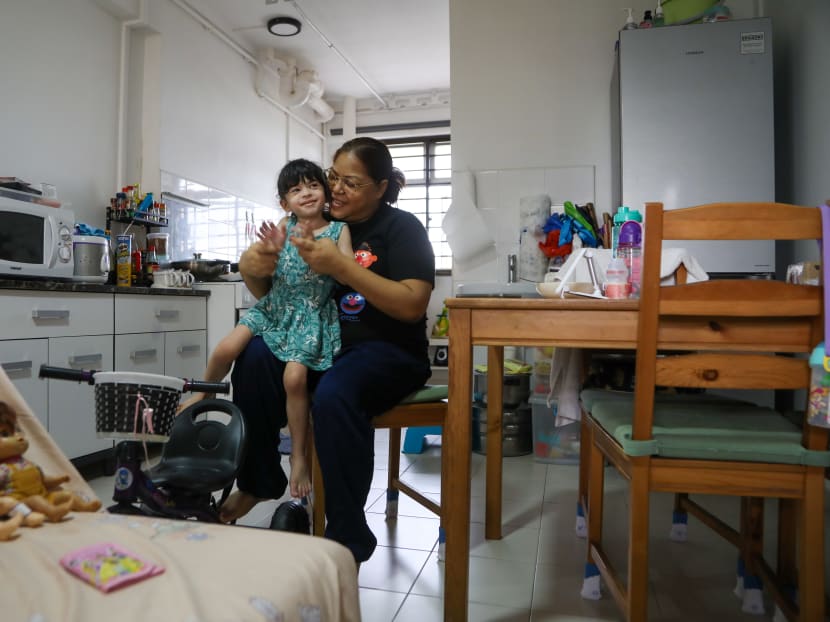
In recent years, in a nod to societal changes and intense lobbying by MPs, there have been moves by the authorities to alleviate the plight of some groups of singles, including single unwed parents and divorcees.
Most recently, the Ministry of National Development (MND) announced on March 4 that it would be piloting a new scheme, where low-income singles looking to apply for public rental flats will soon no longer have to find a flatmate first.
Still, the general sentiment among singles in Singapore — which was also borne out by interviews with this group conducted by TODAY — is that the policy changes do not go far enough and more can be done.
These changes also take place in the context of wider demographic shifts.
According to data from the Department of Statistics, marriage rates have been on the downtrend as fewer couples got married in 2019 compared to 2018 and the number of divorces has gone up. Over a longer-term period, it also showed that Singaporeans are marrying later.
Singapore’s total fertility rate, which refers to the average number of children born to a woman over her lifetime, has also been trending downwards over the last few decades.
The total fertility rate in 2020 is 1.1, far below the replacement level of 2.1.
Given such trends, can or should Singapore continue to incorporate incentives for family formation in its housing policies? And bearing in mind the complexities of the housing market, what are the possible implications and knock-on effects of any changes?
PRESERVING THE FAMILY UNIT
Before 1991, the only option for singles was to buy from the private market or apply for a Housing and Urban Development Company unit, which typically came with a higher price tag.
However, the rules have been relaxed over the years:
1991: Singles above 35 years old were allowed to buy HDB resale flats but limited to three-room flats in selected locations
2004: The options were expanded with singles being allowed to buy four- and five-room flats at any location
2013: Singles above 35 were allowed to buy heavily subsidised Build-to-Order (BTO) flats directly from HDB, but only limited to two-room flats.
Experts interviewed by TODAY noted that in spite of the changes over the decades, those forming families continue to have priority among the many different Singaporean profiles that are looking for public housing.
Mr Nicholas Mak, the head of research and consultancy department at real estate firm ERA, said that the agenda of promoting marriage and children, and ensuring that there is the next generation of Singaporeans, is ultimately about the survival of Singapore.
“I don’t think the Government will drop the objective... to encourage family formation and encourage families to have more children… because there is no substitute,” he said.
Nevertheless, the Government recognises the demographic shifts.
In 2018, then-Second Minister for National Development Desmond Lee said that Singapore needs to keep reviewing its policies to accommodate people and families in different circumstances, such as those coming from single-parent homes and never-married singles.
Mr Lee is currently the National Development Minister.
Speaking to TODAY, National University of Singapore (NUS) sociology professor Tan Ern Ser noted that it’s about balancing the need to form families, as well as ensuring singles of all backgrounds are also being taken care of.
CALLS FOR CHANGE
But singles whom TODAY spoke to feel that this balancing act is tilted too far in favour of those with growing and intact families.
Take the case of Ms Leila, a divorced mother with two children, who declined to give her full name.
After moving out of her matrimonial home in 2015 and filing for divorce after her then-husband abused her, she obtained a court order requiring him, who still lives in the flat, to sell it. However, he has refused to budge.
This means Ms Leila is unable to secure another HDB flat for her and her two children as she still has one flat under her name.
She was only able to get a rental flat in June 2020 after Mr Louis Ng, an MP for Nee Soon GRC, helped her appeal to HDB.
Even then, the whole waiting process was fraught with anxiety as she was initially rejected multiple times.
“Once you don’t feel stable, there are a lot of mental issues, health issues, because you are not grounded. Once you have a safe place, your whole body just relaxes… The Government doesn't have to actually help or give more money or financial assistance because we feel empowered to do things because we are safe,” said the 51-year-old trainer in self-development.
The hurdles single and divorced parents face in securing a flat have also led to some criticism that the housing policies have been designed to favour a very narrow idea of what constitutes a nucleus family.
Mr Ian Lee, who is in a same-sex relationship with his partner for the past 14 years, told TODAY that as the couple are still not seen as a family unit, they were unable to buy an HDB flat before reaching the age of 35. After renting for one year together, Mr Lee finally bought his HDB resale flat when he turned 35 last year through the singles’ scheme.
“HDB has always been about trying to provide homes for Singaporeans but we are denied access to homes (even though we are) at the same stage of life as our heterosexual counterparts,” said the 35-year-old public relations professional.
Mr Lee said he supports the Government’s policy of giving priority to married heterosexual couples in the form of greater subsidies and other benefits, and this should remain.
But he takes issue with what he calls the “anti-single penalties” and feels that one way the Government can tweak the policy is to reduce the restrictions for those who fall outside the nucleus family definition.
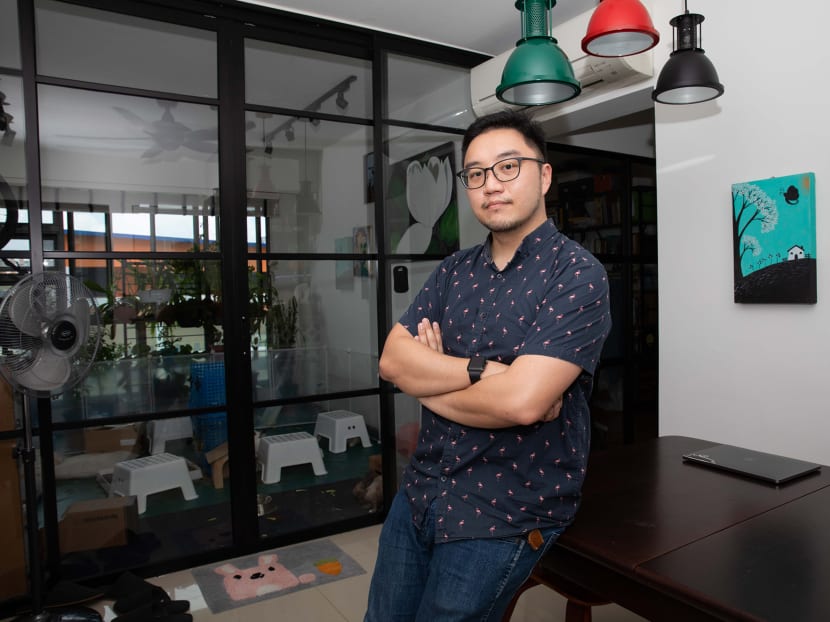
SUGGESTIONS AND POTENTIAL TRADE-OFFS
A long-time advocate for single unwed mothers, Mr Ng, the Nee Soon GRC MP, said it is time to review the housing policy for never-married singles, although he believes that the prioritisation of family formation should still remain.
“A lot are getting married later now, a lot would like to move out of their parents’ house but the current 35-year-old age limit might restrict that. It’s time to review that,” Mr Ng told TODAY.
For a start, he said the Government can consider reducing the age limit to 33 or 34 for BTO flats.
In response to queries from TODAY, a spokesperson from the Workers’ Party reiterated its proposal to lower the minimum age requirement to apply for a BTO flat to 28, and create a new class of rental units — a recommendation which the opposition party made in its manifesto released during last year’s General Election.
Most experts TODAY spoke to said policy tweaks to ease requirements for singles could be considered, but a ‘free-for-all’ situation would not be possible.
The crux of the issue is that while HDB has to cater to various types of housing needs, it only has limited land and financial resources.
Lowering the age eligibility for singles to buy HDB flats would mean that more subsidies would have to be given to them, in addition to land and building costs, pointed out Associate Professor Sing Tien Foo, Director of the Institute of Real Estate Studies at NUS.
Another factor complicating how the Government should set the eligibility requirements is the fact that HDB flats are highly subsidised, noted Professor Paulin Tay Straughan, a sociologist at the Singapore Management University (SMU).
“Herein lies the difficulty. If a person is not married, should taxpayers’ money be going into subsidising their homeownership? I think it’s very hard to get around that… Unless there are exigencies and this person just cannot find a place to live and rentals are so exorbitantly high. Then it becomes a welfare situation,” she said.
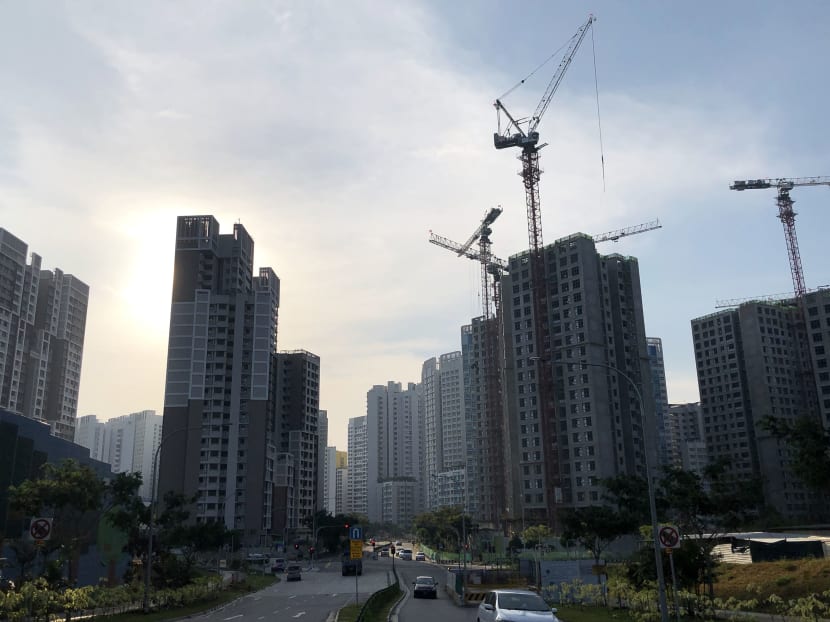
However, this is not to say that there is absolutely no room for the rules on singles to be reviewed.
One way to make the case for singles below 35 to get an HDB flat is for them to buy it from the resale market, as they would then be buying the unit at market value and not be relying on government subsidies, said Prof Straughan.
To ensure that the market is not distorted, she suggested three criteria that could accompany this lowering of age eligibility: There must be enough supply of HDB resale flats; singles are only restricted to buying smaller three-room flats; and they have extenuating circumstances, such as not having a place to stay.
Mr Mak also noted that any move to lower the age limit for singles to buy HDB flats would definitely lead to price increases, and this would generally be more advantageous to the high-income segments of the population, while low-income households get priced out.
Safeguards would have to be put in place to prevent any abuse, he said, such as imposing income ceilings on resale flats, just like for BTOs.
Another suggestion that could ease the housing frustration for singles is for HDB to build better-quality rental housing for young singles to rent from the age of 30 before they can buy their own flat at 35, said Assoc Prof Tan, the NUS sociologist.
PRIORITISING CERTAIN GROUPS OF SINGLES
Since it is unlikely for the HDB to completely relax these restrictions, experts and MPs interviewed said any policy adjustment should first cater to the plight of vulnerable singles, which would typically include low-income individuals, single or divorced parents.
Prof Straughan and Mountbatten MP Lim Biow Chuan said more attention should be given to elderly singles — not only because they are the most vulnerable segment but also because they would increase in numbers with Singapore’s ageing population.
Assoc Prof Tan believes that families with children, whether from single unwed parents or divorced parents, should be prioritised.
Assoc Prof Sing felt that the level of income — and not family type — should be the first measure of assessing whether an individual and his or her family requires government assistance for housing.
However, he acknowledged that making such decisions is a complex issue, with the Government having to consider many factors.
“It’s very difficult to measure properly, difficult to draw the line on who you should help if you have resources,” he said.
INCREMENTAL STEPS NEEDED
Meeting the public housing needs of every Singaporean has been a mammoth task from the start, and it is likely to become more complicated in the future.
As the make-up of Singapore society becomes more diverse, so would be their housing needs, which may even be competing against each other.
However, Mr Ng, the Nee Soon GRC MP, believes change can still happen incrementally while retaining the status quo, which is why he suggested to lower the age limit by one or two years before making further adjustments if necessary.
While recognising that resources are limited, he believes that tweaking housing policy levers is not about “restricting one and helping the other”.
“Married people will still get their bigger HDB flats and more subsidies, but I think singles should also get their fair share of the pie,” said the MP.
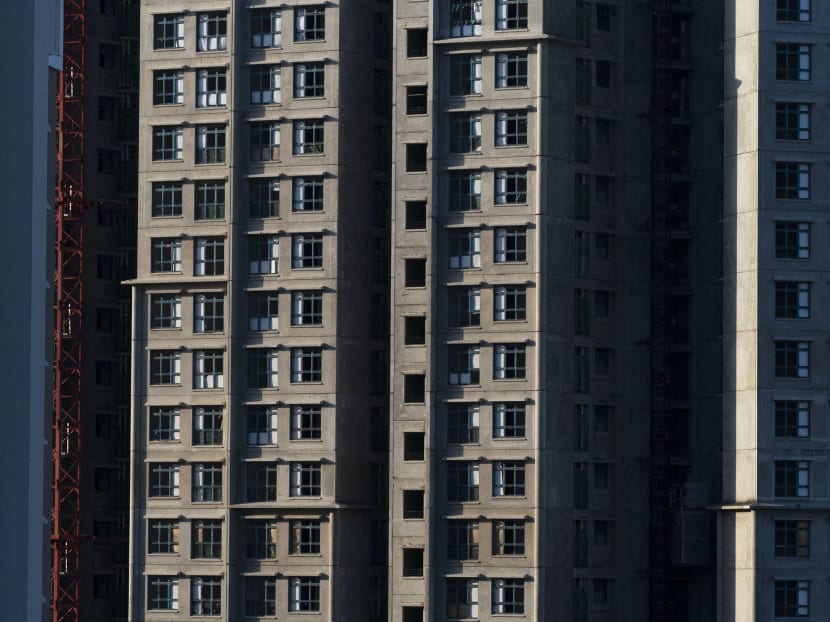
Fully aware of the complexities behind Singapore’s housing policies, Mr Abhishek Ravikrishnan, who is currently renting a room as he is not old enough under HDB rules to buy a public flat, acknowledged that there will always be a segment of the population that will be left out no matter how much policymakers adjust the rules.
However, the 31-year-old that produces sports content still believes that something needs to be done.
“We have a growing number of people who don’t want to get married… all kinds of people living together in one country under one citizenship, you cannot ignore that,” he said.








